Bill Gates’ memoir Source Code reveals how a boy genius conquered the world
Bill Gates’ memoir Source Code delves deeply into his childhood with an undiagnosed gift, as he seeks to explain (and perhaps understand) his own, unique operating system.
Bill Gates has written a memoir in which he says he would probably be diagnosed with autism were he a kid in school today.
Looking back, he can see how fidgety in class he was. He remembers how he liked to be left alone to nut out knotty problems. Other kids may have dipped excitedly into the Encyclopedia Britannica; by the age of nine, the young Bill Gates had read through every volume, A to Z. He knew the different heights of all the world’s penguins, and could talk about that for hours.
“And I had that rocking habit,” he writes, which he used to soothe himself.
“But, you know, no terms (like autism) were applied in those days,” says Gates, in a Zoom interview with Inquirer ahead of the launch of his book, and while many adults are these days seeking a formal diagnosis, he won’t be one of them.
“I’m not going to start taking medicine or something,” he says. “That learning style I had, of intense concentration, was very beneficial to me, even though the social things were much more difficult … For kids nowadays, you know, is it better or worse that they are diagnosed?”
Gates stops short in his book of describing his autism – if that is indeed what he has – as a gift, or superpower. He thinks it only partly explains his success as a computer programmer who started Microsoft, invented Windows, and became, at least for a time, the world’s richest man. His book, which covers only the first 25 years of his life, delves deeply into all aspects of his childhood, as he seeks to explain (and perhaps understand) the development of his own, unique operating system. In that sense, the title, Source Code, is perfect, and I’m keen to know if Gates himself came up with it.
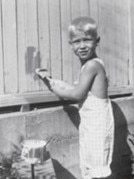
“No, but I approved it,” he chuckles down the line.
Gates explains the book is “a collaboration” with a former journalist from The Wall Street Journal, who “typed more words than I did”. He told the stories, and says Gates “ended up doing quite a bit of editing because things like my relationship with my mum, nobody else can really get … those are complex topics”.
The result is a surprisingly tender account of an all-American childhood in Seattle, in the wildly optimistic post-war boom years. Gates, 69, was one of three kids born to middle-class parents who encouraged good manners (“don’t put your elbows on the table, don’t eat in front of the TV”). He had his own room in a pleasant neighbourhood, where he could hear the crack of baseball bats through his bedroom window. A keen hiker and boy scout, he liked to play cards as a kid; he clearly remembers the moon landing and the arrival of the Jetsons on TV. That said, his parents recognised quite early “that the rhythm of my mind was different from that of other kids”.
He could go days without speaking, “emerging from my room only for meals and school”. One teacher said that he did not know – or seem to care – how to “put on his own coat”.
His parents sought the help of a psychiatrist, who “just talked to me” about ways of managing school work and friendships. His parents also decided to send him to a small private school – Lakeside, in North Seattle – where he was “given the opportunity at age 13 to play around with a computer funded by a mother’s club rummage sale”.
He was soon obsessed.
“I loved how the computer forced me to think. It demanded that I be logically consistent and pay attention to details. One misplaced comma or semicolon and the thing wouldn’t work,” he says.
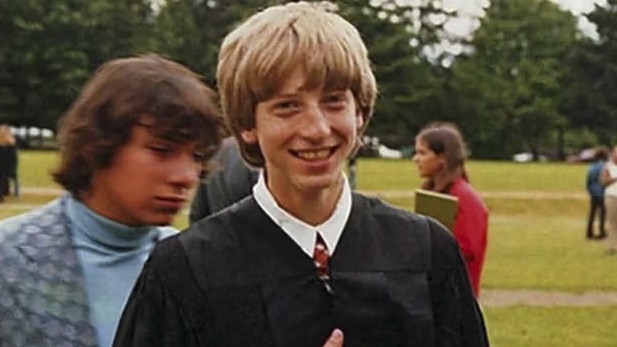
He spent hours, days, weeks writing code, without the aid of guidebooks, because there simply weren’t any. So, he was a complete nerd, then? Well, no. Readers of his book may be surprised to hear that he smoked pot as a kid, dropped acid as a college student, and once spent a night in jail. He liked girls, too. There is a lovely moment in the book where he works up the courage to ask a pretty student to the prom. She says she’ll think about it, but ultimately turns him down and goes with a quarterback instead. It makes his heart hurt, but what’s a geeky kid to do? Boys like Bill just weren’t considered boyfriend material. His awkwardness with women accompanied him to Harvard. Gates still remembers attending “mixers” in 1973 – the year that Roe v Wade guaranteed the right to abortion, and the start of America’s slow exit from Vietnam – dressed in “an expensive brown leather jacket that I paired with blue velvet bell-bottoms (but) I never had any luck meeting women at these parties … Guys in our wider circle would come back (from the mixers) claiming they had. Almost in unison the rest of us would stammer, “How do you do that?”
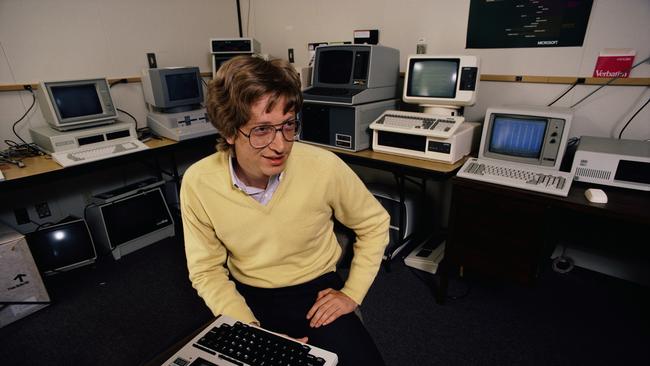
Then, in 1987, at a trade fair in New York, Gates met Melinda French, who had just started working for Microsoft, the company he had founded with a former school friend, Paul Allen. They married in 1994, and stayed married for 25 years, raising three children. That marriage has since ended, and the terrain here is tricky, since Gates has acknowledged an affair, and poor behaviour. Given that he had always looked up to his parents, who had such traditional values, does he regret that his own marriage ended?
“Sure,” he says, without hesitation.
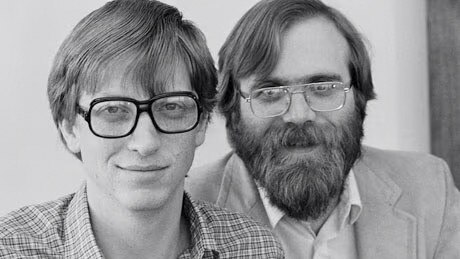
I figure it must have occurred to him, at some point: “Hang on, I’m the rock star now. I’m the quarterback. I’m the richest guy in the world…” and maybe that led him into temptation?
He’s not sure about that, but says: “I do remember going to a high school reunion once, and one girl – not the girl I asked out to the prom, but another girl – came up and said, Bill, I didn’t even know you had a personality.
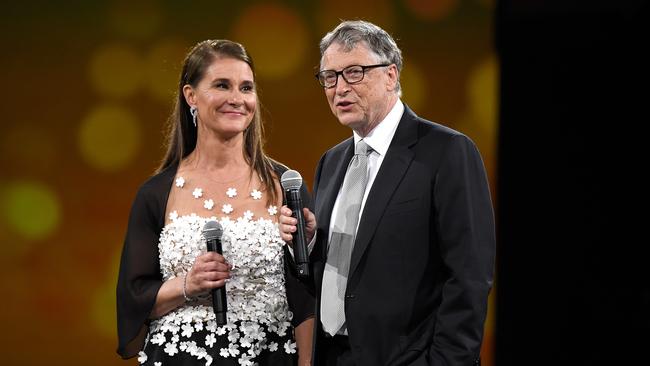
“A lot of the time, when I was going into a cocktail party or something, I would think, ‘Oh, God, will anybody want to talk to me?’ That problem definitely did get solved.”
Gates’s former wife told Vogue magazine a few years ago that she had forgiven Bill for his transgressions, but loathed her husband’s connection to the vile sex predator Jeffrey Epstein, describing him as “evil personified”.
Gates has said that he, too, regrets the time he spent with Epstein. He was a bit lost after the divorce, rattling around his $US200m mansion on Lake Washington (it has 24 bathrooms and six kitchens, which he knows is ridiculous; he says he offsets the enormous footprint of his house and the near constant travel with carbon credits). He now has a new partner, Paula Hurd, who is the widow of the former Hewlett-Packard chief executive, Mark Hurd (they came to Australia last January for the Open tennis) and his relationship with his children seems good.
Of course, his memoir stops well short of any of those developments, but he is likely to get to them, since Source Code is merely the first volume of a planned trilogy.
Why three books?
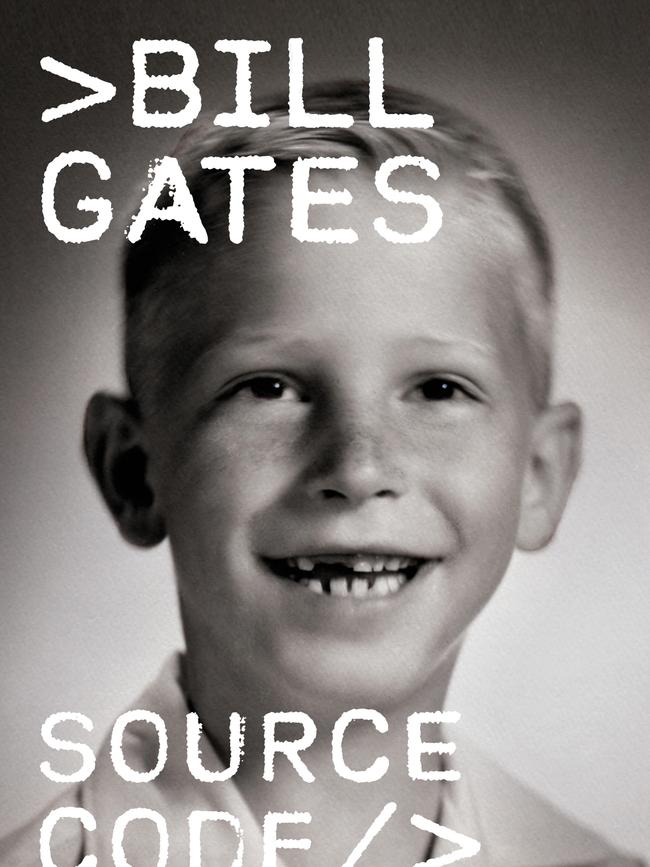
Like many men approaching the final quarter, Gates is thinking about his legacy, and it’s clear that he hopes to help shape it. You can sense his frustration in that regard. He was a boy genius – his invention, the Windows operating system, changed almost everything about the world in which we live – and he’s ploughed tens of billions of dollars from the colossal fortune he made into reducing poverty and curing malaria in some of the poorest countries on earth. He loves doing it – he has a jet that he can use to travel from one hot spot to another; he has teams of people working on all manner of exciting breakthroughs – and yet, when you go online, you’re likely to find his name linked with thousands of bat-poo crazy conspiracy theories (Gates is trying to depopulate the world by poisoning the water supply; Gates is using the Covid-19 vaccine to sterilise women in poor countries; Gates is not preventing but actively spreading viruses).
Does he try to counter these stories when they come up?
“Look, most of them are probably best to ignore,” he says. “They are a few thousand people in some weird group … like, there was a recent one about how I’m trying to change the weather … It’s such a fringe thing that any notice I take of it would actually make it worse. They’d be like, ‘Oh, must be true. He’s denying it’.
“But things that go mainstream, like the Robert Kennedy Jr book (he doesn’t name it, but it’s called The Real Anthony Fauci: Bill Gates, Big Pharma, and the Global War on Democracy and Public Health, and it has sold more than a million copies in the US) which says I’m making money from vaccines, because it’s been widely read, I do feel the need to speak out and say, ‘hey, this is completely the opposite of the truth’. I saw another story where I was trying to track people’s location by embedding something in the virus. I mean, you just have to laugh at some of it … You really do have to have a sense of humour about it, because it’s so random.”
Does he have a view as to why he, in particular, has become a target of such wild claims?
“Well, if you’re looking for simple explanations, the idea that there’s a weird billionaire who somehow behind the scenes is manipulating things is an (easy) story to understand,” he says.
Gates also now finds himself on the wrong side politically, having donated $50m to Kamala Harris in her bid for the White House.
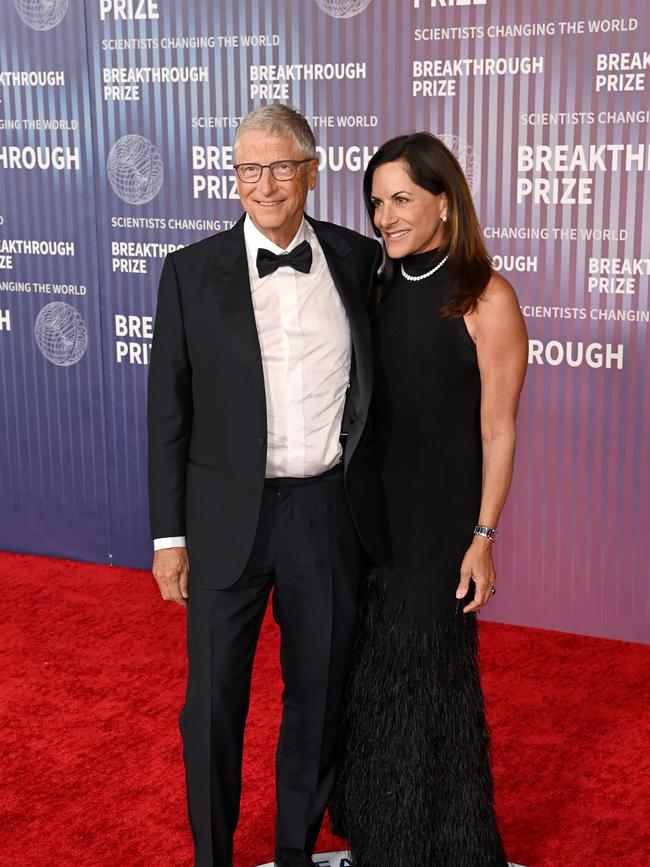
Was he surprised that Donald Trump won?
“I don’t pretend to be good at predictions. I wasn’t sure who would win … and he won,” he says, grinning.
Plenty of other tech bros, like Mark Zuckerberg, who were also once seen as progressive, are now sidling up to Trump, hoping for treats and favours. That’s not really Gates’s style, but does he feel that he will be able to work with the returning President?
“I had a chance to meet with him in Mar-a-Lago for a long dinner,” he says, cautiously.
“He’s obviously getting input from tonnes of people.”
He’s not yet sure how Trump will respond to the idea that the US should continue to support the Bill and Melinda Gates Foundation in its vital work across the globe (they say they have halved the number of deaths from malaria, and from HIV-AIDs, which is nothing to sneeze at).
As for the man who stole Gates’s title as the world’s richest man, Elon Musk … does Gates have any thoughts about him?
“He’s an incredible genius,” Gates says, without hesitation. “And he’s at the centre of the world right now. I’ve talked to him about technology and about philanthropy … I hope he becomes a good philanthropist too.”
Source Code: My Beginnings by Bill Gates (Penguin Books Australia, $55 HB) will be published on February 4.



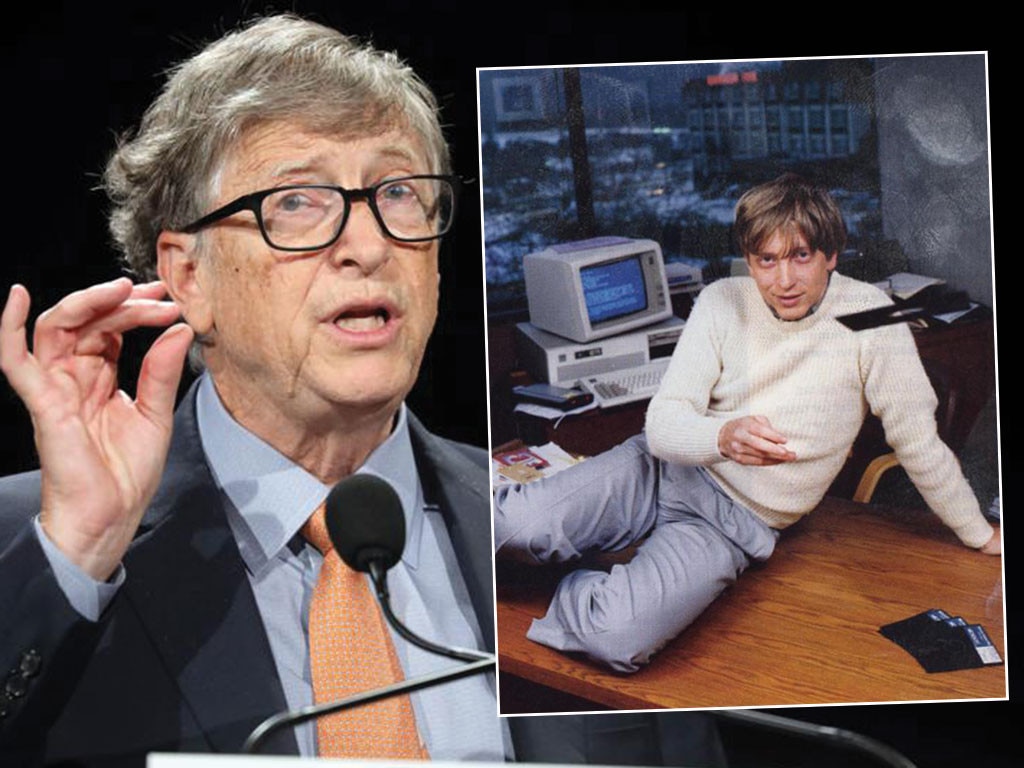
To join the conversation, please log in. Don't have an account? Register
Join the conversation, you are commenting as Logout